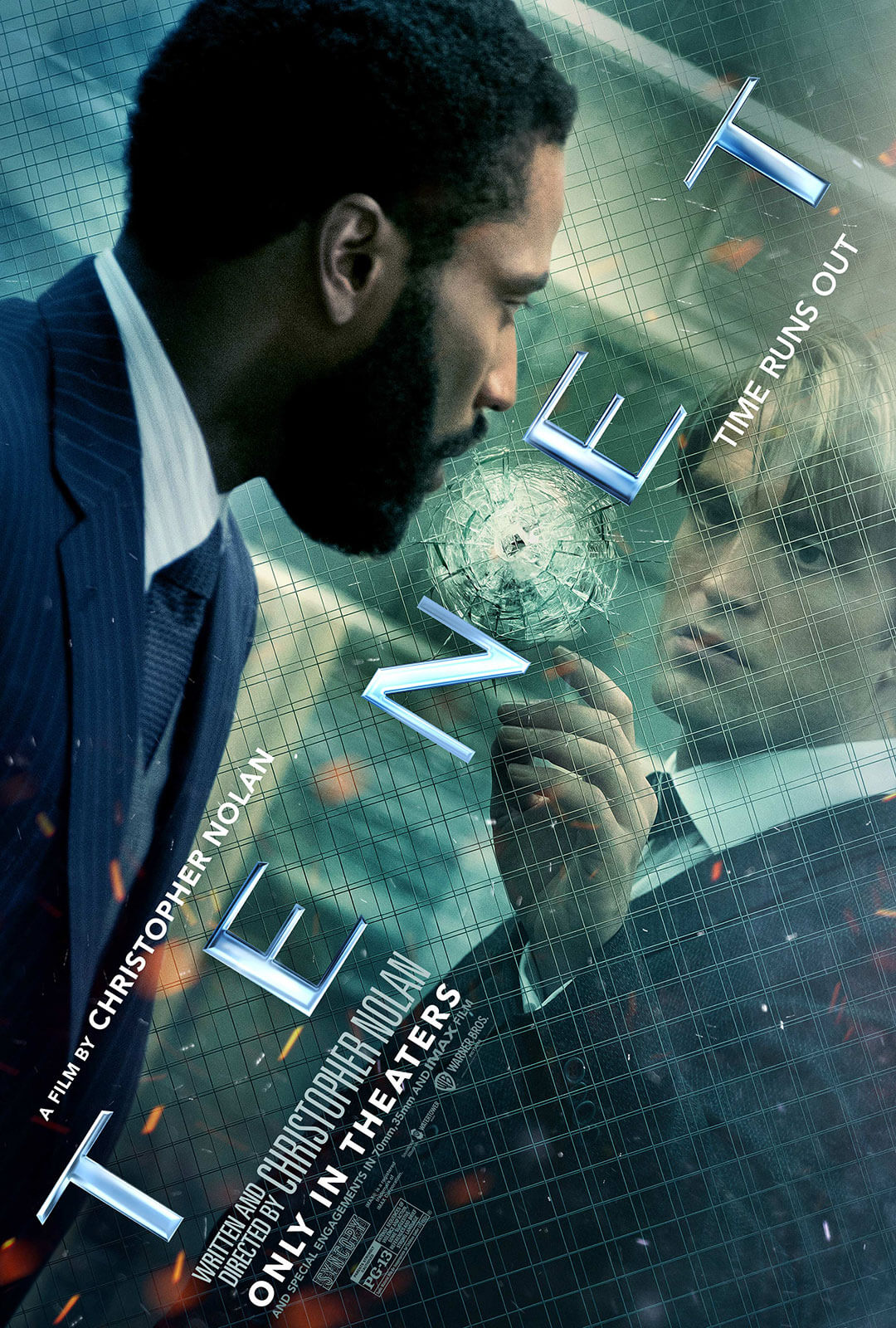Pictured Above: Christopher Nolan’s Tenet starred John David Washington and Robert Pattinson as special agents on a mission to prevent the destruction of humanity.
Courtesy of tenetfilm.com
By Sophie Ojdanic
Christopher Nolan has found the ultimate money-making loophole: make a movie so confusing that audiences have to watch it more than once.
Tenet is enjoyable — if you’re into just nodding along to explanations you still don’t understand.
The film had a U.S. release on Sept. 3 after being delayed three times. Originally, it was scheduled for July 17, then pushed to July 31 and then Aug. 12, before studios settled on Sept. 3. Tenet’s international box office gross was $53 million on opening weekend.
Written and directed by Nolan, Tenet stars John David Washington (BlacKkKlansman), Robert Pattinson (Twilight, The Lighthouse), Elizabeth Debicki (The Man from U.N.C.L.E) and Kenneth Branagh (Dunkirk, Murder on the Orient Express), and runs for an incredibly confusing 150 minutes.
The movie follows Washington’s unnamed protagonist, a CIA agent who finds himself caught in the civilization-ending plan of a Russian arms dealer, played by Branagh. The plan involves the creation of what the film calls “inverted” technology, which is explained as an object from the future being sent back to the past. This means that instead of time travel, objects act in the reverse of how they’re meant to. Throughout the film, this technology develops into being able to transport human beings.
As I’m sure is explained in some hard-to-hear dialogue exposited by Pattinson’s character, inversion combined with some sort of algorithm can be used to end the human race, so a majority of the film follows Washington’s protagonist as he tracks down parts of this algorithm.
Like most of Nolan’s work, the highlights were in the production of the film. Cinematographer Hoyte van Hoytema, who previously worked with Nolan on Interstellar and Dunkirk, returned with another visually stunning film. Combined with a Hans Zimmer-trapified score from Ludwig Goransson and editing and stunts straight out of a James Bond film, it’s difficult to argue that Tenet isn’t worthy of praise.
Unfortunately, the film’s writing is where it suffered. The characters are essentially one-dimensional, but it’s barely noticeable with all the acting powerhouse-ness going on.
Explanations throughout the movie were clear upon first listen but muddled as the film progressed.
Tenet, all-in-all, felt more focused on the artful aspects of the film, with less attention paid to character moments or clear plot explanations.
Thus, my ultimate rating of the film is a 6-out-of-10. Broken up, there are great sequences with cool stunts, shots and score, but put together everything just sort of ties itself together in a confusing ball of plot-twine.
But don’t worry, the film tells you what you’re getting into early on with a line of dialogue saying: “Don’t try to understand it, feel it.”
Those members of the audience who would like the opportunity to dissect the film can catch it in theaters, with the closest theater to campus being AMC Sundial 12. All AMC theatres require masks unless guests have purchased concessions.



